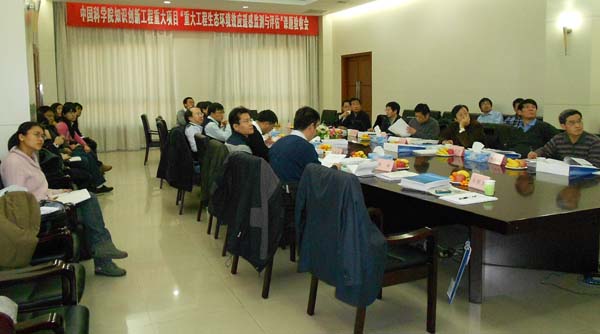Recently, the research team led by Professor Du Jiangfeng of the National Laboratory of Physical Sciences at Hefei, China University of Science and Technology, and Professor Liu Renbao of the Chinese University of Hong Kong collaborated to observe the phenomenon of abnormal decoherence in the single electron spin system composed of diamond NV vacancies. The existence of an abnormal decoherence phenomenon shows the quantum characteristics and controllability of the environment around the electron spin. Related work was published in the journal Nature-Communication. The experimental results have taken an important step in quantum information processing using quantum noise. Due to the coupling interference of the environment to the quantum system, the coherence of the system is inevitably lost. This has been an extremely important effect in quantum information processing and is known as decoherence. According to the classical noise theory, the effect of the environment on the electron spin is regarded as a classic random fluctuation. According to this classic model, it can be concluded that the stronger the noise, the faster the decoherence of the system. This model has successfully explained the decoherence process in various systems. But the above classical model is based on the assumption that the scale of the environment is large enough compared to the central spin, so that the reaction from the central spin to the environment is negligible. However, with the development of contemporary quantum science, the scale of the external environment has become smaller and smaller compared to the central spin system. In this case, a quantum mechanical based model must be used to deal with the decoherence effect. The theoretical calculations of Professor Liu Renbao and others predict that the decoherence phenomenon cannot be explained by classical noise theory in a single electron spin system with a large number of nuclear spins. Professor Du Jiangfeng's research team used the three-level system composed of NV vacancy color centers in diamond ultrapure samples to study its decoherence phenomenon. In this system, the central electron spin and the surrounding hundreds of carbon thirteen nuclear spins are coupled to each other. The coupling strength of the |1> and |-1> superposition states (second-order coherent terms) and the environment is twice the coupling of the |1> and |0> superposition states (first-order coherent terms) to the environment. At normal temperature, the thermal fluctuation caused by the random orientation of the nuclear spins leads to a strong decoherence effect of the system. At this point the decoherence process is classic. To see the non-classical decoherence process, the researchers used dynamic decoupling to eliminate classical noise. The observed phenomenon is surprising: as the dynamic decoupling order increases, the coherence time of the second-order coherent term grows faster than the first-order coherent term, and the coherence time of the last second-order term exceeds the first-order term. In the case where no fitting parameters are used, the theoretical numerical simulation results in very good agreement with the experimental data.  The experimentally observed anti-constant decoherence phenomenon indicates the quantum properties of the spinogram noise of the carbon thirteenth core around the electron spin. Due to the existence of nuclear spin noise and central spin interaction, nuclear spins are also coherently controlled when the central electron spin is flipped using dynamic decoupling techniques. This research shows that the quantum properties exhibited by the microscopic scale of the external environment are not a useless noise, but a useful resource that can be used for quantum information processing.
The experimentally observed anti-constant decoherence phenomenon indicates the quantum properties of the spinogram noise of the carbon thirteenth core around the electron spin. Due to the existence of nuclear spin noise and central spin interaction, nuclear spins are also coherently controlled when the central electron spin is flipped using dynamic decoupling techniques. This research shows that the quantum properties exhibited by the microscopic scale of the external environment are not a useless noise, but a useful resource that can be used for quantum information processing.
 The experimentally observed anti-constant decoherence phenomenon indicates the quantum properties of the spinogram noise of the carbon thirteenth core around the electron spin. Due to the existence of nuclear spin noise and central spin interaction, nuclear spins are also coherently controlled when the central electron spin is flipped using dynamic decoupling techniques. This research shows that the quantum properties exhibited by the microscopic scale of the external environment are not a useless noise, but a useful resource that can be used for quantum information processing.
The experimentally observed anti-constant decoherence phenomenon indicates the quantum properties of the spinogram noise of the carbon thirteenth core around the electron spin. Due to the existence of nuclear spin noise and central spin interaction, nuclear spins are also coherently controlled when the central electron spin is flipped using dynamic decoupling techniques. This research shows that the quantum properties exhibited by the microscopic scale of the external environment are not a useless noise, but a useful resource that can be used for quantum information processing.Rubber Conveyor Belt Price,Rubber Conveyor Belts,Rubber Conveyor Belt Material,Rubber Conveyor Belting For Sale
EPDM Rubber Flooring,Bumper PlateCo., Lt d , http://www.nbconveyorbelts.com